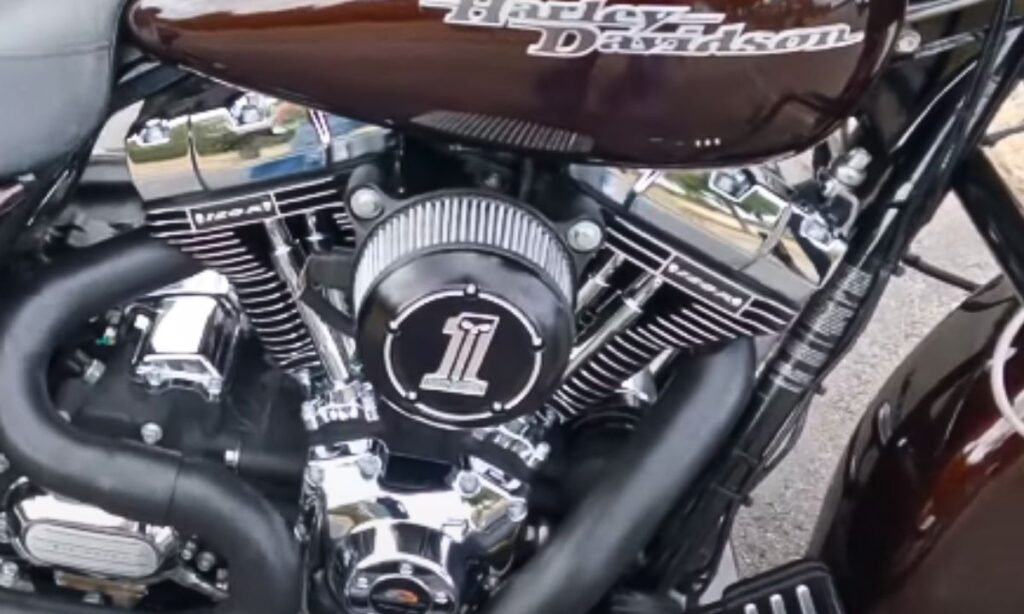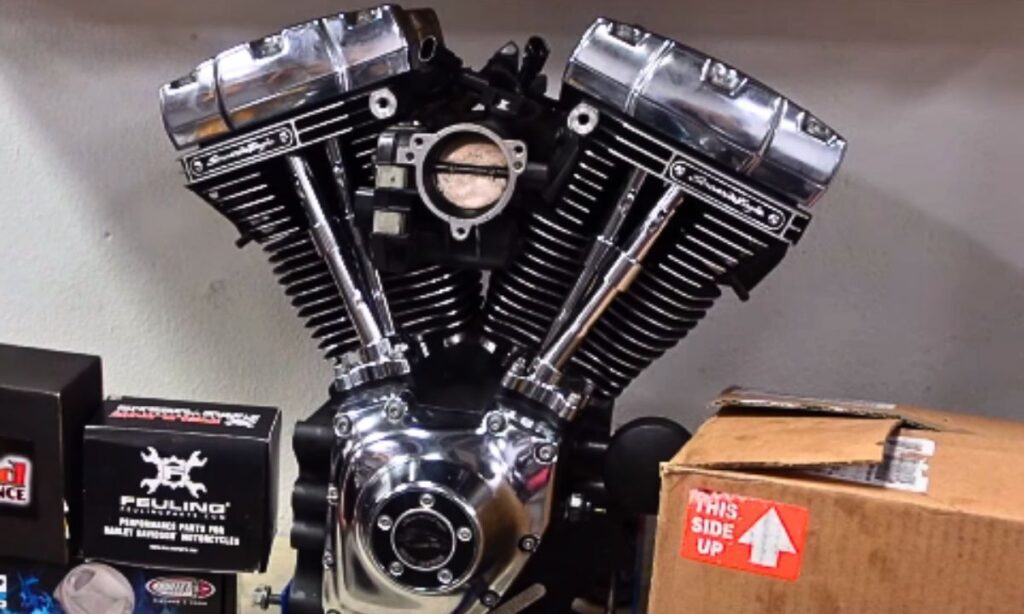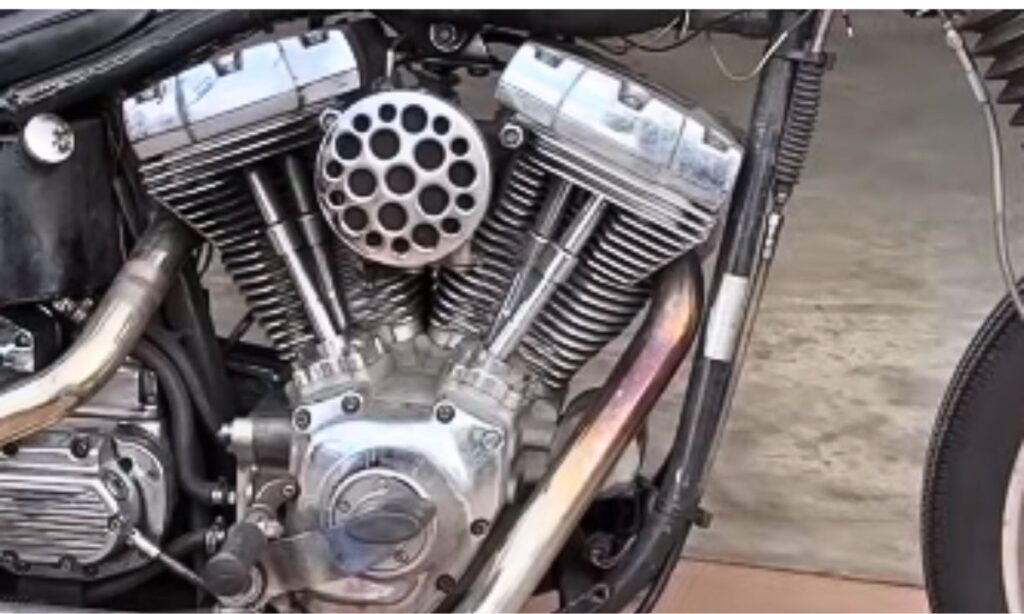The Harley 120R engine, a renowned powerhouse in the motorcycle world, has been associated with certain problems that have left owners and enthusiasts in trouble.
These issues can lead to decreased performance, costly repairs, and even potential safety risks.
In this article, we will dive into these problems and potential solutions for the challenges faced by users of the Harley 120R engine.
Harley 120r Engine Problems
These issues vary from high oil consumption and overheating to significant vibration at higher RPMs, often leading to discomfort during long rides.
However, some users have reported cases of premature wear of internal components, which could potentially lead to expensive repairs and replacements.

1. Oil Leak
One of the common problems encountered by owners is the oil leaks. These leaks could be a result of a faulty gasket or seal, a loose oil filter, or damaged engine parts.
If left unattended, oil leaks can lead to serious engine damage due to inadequate lubrication. To identify an oil leak, watch for dark stains or puddles under the motorcycle or dirty spots on the engine.
A burning smell, blue exhaust smoke, and falling oil pressure are also indicators of an oil leak.
Addressing an oil leak requires a systematic approach. Start by cleaning the engine thoroughly to locate the source of the leak.
Once you have identified the cause, the next step is to diagnose the cause. If it’s a loose oil filter, tightening it might solve the issue.
However, if the leak is due to a faulty gasket or seal, replacement of the component might be necessary.
You should always use high-quality replacement parts and maintain the correct oil level in your Harley 120R engine.
2. Overheating
Harley 120R, while renowned for its formidable power and performance, has been reported to have overheating issues.
Despite the robust design, the power of the engine can lead to excessive heat generation, particularly under strenuous conditions.
Overheating can be due to a lack of adequate airflow around the engine, a malfunctioning cooling system, a higher-than-normal engine load, or an excessively lean fuel-air mixture.
To address these issues, firstly, ensure that the engine is well-ventilated.
Avoid idling for long periods, and make sure the motorcycle is not subjected to extended periods of intense heat without sufficient air circulation.
Secondly, verify the efficiency of your cooling system. The coolant should be changed regularly, and the radiator or fans should be in perfect working order.
A malfunctioning cooling system can significantly contribute to overheating.
However, also consider your engine load. Consistently pushing the engine to its limit can cause it to overheat.
Regular maintenance, oil changes, and checking spark plugs can help keep the engine running smoothly.
Lastly, check the fuel-air mixture. A lean mixture can cause the engine to run hotter than it should. This is a more complicated issue and may require the assistance of a professional mechanic.
3. Bolt Failure
When these bolts fail, it can lead to serious damage, including gasket leaks and even catastrophic engine breakdown.
The primary cause of bolt failure can be improper torque. Each bolt must be tightened to a specific torque, which can vary depending on the bolt’s location and purpose.
If bolts are over-tightened, their threads may be damaged, reducing their holding power and leading to potential failure.
On the other hand, under-tightening can allow critical components to move or vibrate, which can also cause bolt failure.
To prevent bolt failure, always use a calibrated torque wrench when installing or maintaining your engine.
Follow the manufacturer’s torque specifications, and ensure that the bolts are clean and free from damage before installation.
Using a thread-locking compound can also help prevent bolts from loosening due to vibration.
4. Low Fuel Economy
Fuel economy is directly linked to the engine’s combustion efficiency: the better the combustion, the less fuel is wasted, and the more mileage you get out of your bike.
Poor fuel economy could be due to a malfunctioning fuel injector, which delivers fuel to the engine’s combustion chamber.
If the fuel injector is leaking or delivering too much fuel, it could result in wastage and poor fuel economy.
Another possible reason could be a clogged air filter. Air filters prevent dust and debris from entering the engine, but over time, they can get clogged, restricting airflow to the engine and causing it to consume more fuel.
Riding habits also play a significant role. Aggressive riding styles, frequent hard acceleration, and high-speed riding can lead to higher fuel consumption.
To improve the fuel economy of your Harley 120R engine, ensure regular maintenance checks, keep the air filter clean, and monitor your riding habits.
5. Starting Issue
This may occur due to a weak battery, starter motor issues, or problems with the ignition switch.
Here are some causes which cause the hard starting:
I. Weak Battery
If the battery is old or not properly charged, it may not have enough power to crank the engine.
Use a multimeter to check the battery voltage. It should be 12.6 volts (for a fully charged battery) when the engine is off. If the voltage is low, recharge or replace the battery.
II. Starter Motor Issues
If the starter motor is defective, it may not turn the engine over fast enough (or at all) to start.
Listen for a clicking sound when trying to start the engine. If you hear this, the starter motor may be the culprit. It may need to be replaced.
III. Ignition Switch
If the ignition switch is faulty, it may not send the signal to the starter motor to begin cranking the engine.
You can check for this problem by turning the ignition switch and listening to the sound of the fuel pump priming. If you don’t hear this sound, the ignition switch could be faulty.
6. Vibration
Engine vibration can lead to discomfort while riding, increased wear and tear on the motorcycle’s components, and, in severe cases, mechanical failures.
Vibration is typically caused by an imbalanced crankshaft, worn-out engine mounts, or misalignment between the engine and drivetrain.
Understanding these potential causes can help in addressing the vibration problem. In order to reduce engine vibration, it’s crucial to regularly maintain and inspect your Harley 120r Engine.
This includes checking the crankshaft for balance and ensuring that the engine mounts are in good condition.
Misalignment can be checked by a professional mechanic and fixed by adjusting the position of the engine or drivetrain.
However, installing vibration-dampening accessories can be another effective way to minimize the vibration.

Tonmoy, the brains behind the influential motorcycle-focused website, TwoWheller.com, is a dedicated and passionate advocate for biking culture. Born and raised in a family of motorcycle enthusiasts, his love for two-wheeled transportation was ignited at an early age. His commitment to providing in-depth reviews and helpful tips for riders has established him as a respected figure in the motorcycle community.

